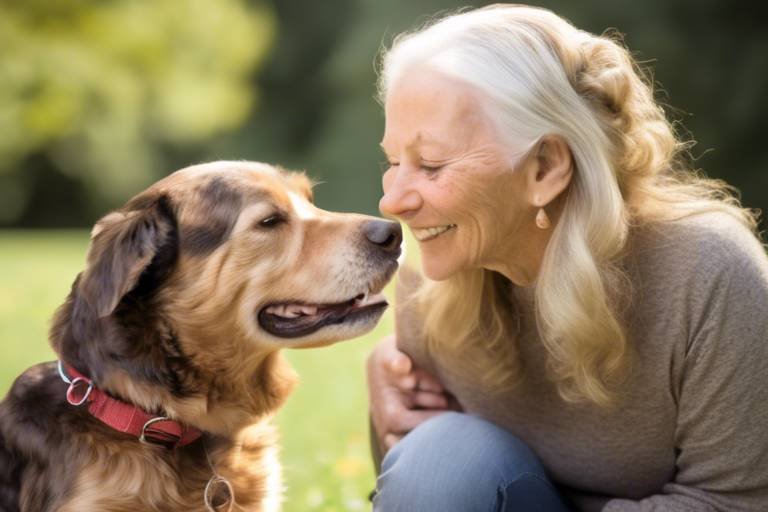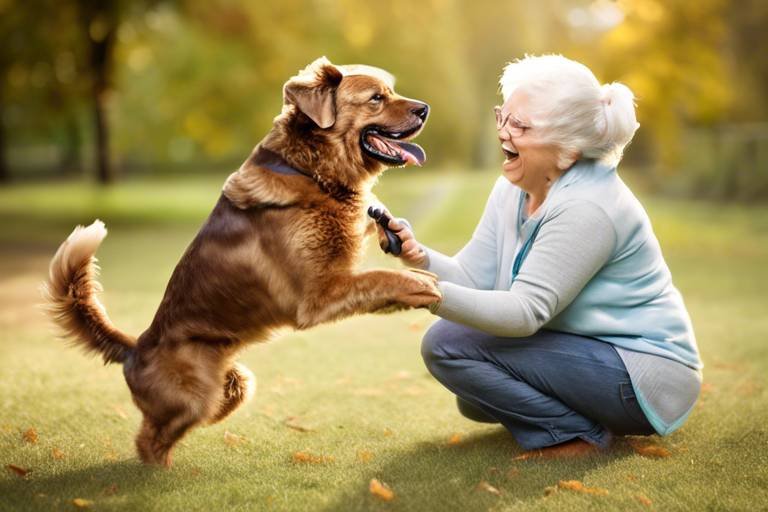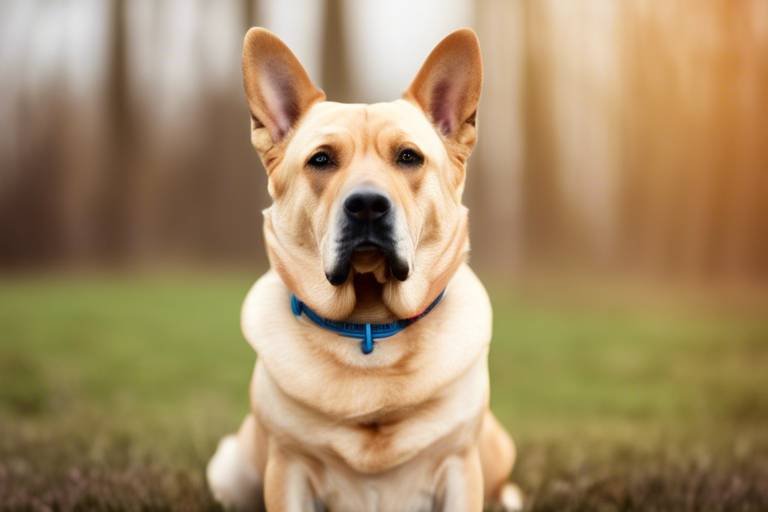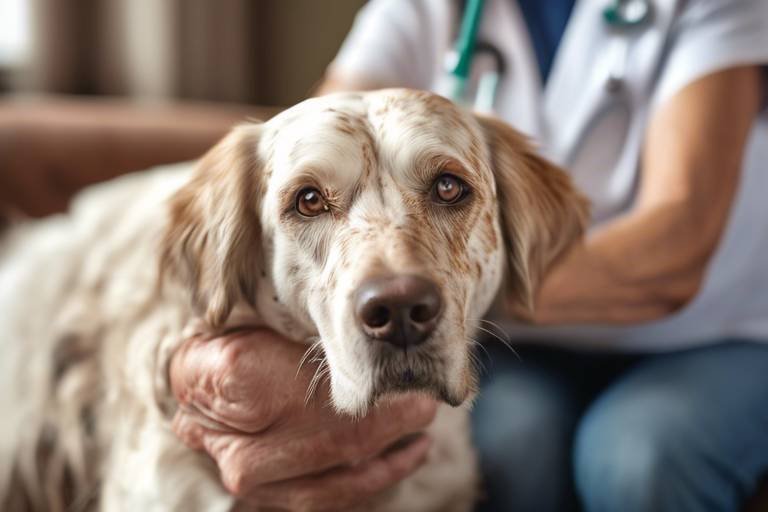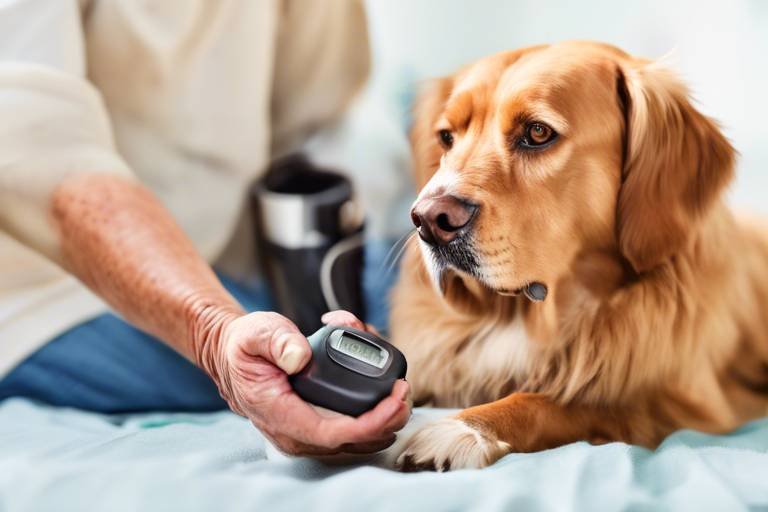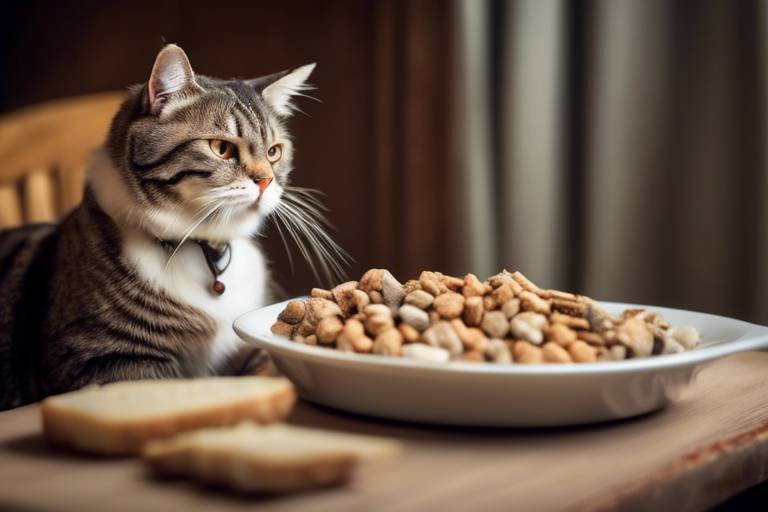Senior Pet Adoption - What You Should Know
Adopting a senior pet is not just a noble act; it's an experience filled with joy, companionship, and a sense of fulfillment that can transform your life. Many people overlook older animals in shelters, focusing instead on puppies and kittens. However, senior pets have so much to offer, and understanding their unique needs and benefits can lead to a rewarding experience for both you and your new furry friend. This article will explore the importance of adopting senior pets, the advantages they bring, and essential considerations for prospective pet owners. By the end of this read, you’ll be armed with the knowledge you need to make an informed decision about welcoming a senior pet into your home.
When you choose to adopt a senior pet, you’re not just saving a life; you’re gaining a loyal companion who has already weathered many storms. Senior pets often come with lower energy levels, which can be a perfect match for individuals or families looking for a calmer addition to their household. Unlike younger animals, senior pets typically have established temperaments, making it easier to predict their behavior. This means less guesswork for you! Furthermore, many senior pets are already house-trained and require less training and adjustment time, allowing you to focus on building a bond rather than correcting behaviors.
Every pet, regardless of age, has unique needs, but senior pets especially require special attention. As they age, their health care, dietary requirements, and exercise routines change. It’s crucial to consider these factors to ensure they live a comfortable and happy life in their new home. For instance, you might need to adjust their diet to accommodate potential health issues, or provide them with gentler exercise routines to keep them fit without overexerting them.
Older pets may suffer from specific health issues that require careful consideration. Common ailments include arthritis, dental problems, and even more serious conditions like heart disease. Understanding these conditions can help potential adopters prepare for necessary veterinary care and make informed decisions about their new pet's well-being. Regular health check-ups become vital as your pet ages, ensuring that any issues are caught early and treated promptly.
Familiarizing yourself with common health problems in senior pets can significantly enhance their quality of life. Some of the most prevalent issues include:
- Obesity: This can lead to a host of other health problems, including diabetes and heart disease.
- Diabetes: Requires careful management of diet and insulin levels.
- Joint Pain: Conditions like arthritis can limit mobility and cause discomfort.
Recognizing symptoms early can lead to timely treatment, allowing your senior pet to live a happier, healthier life.
Preventative care is essential for maintaining the health of senior pets. Regular veterinary check-ups, vaccinations, and dental care are vital components of their health regimen. These preventative measures can help identify issues before they become serious, ensuring your pet enjoys a longer, healthier life. Think of it as a proactive approach to health—just like how we humans visit the doctor for regular check-ups!
Creating a welcoming and safe environment for your senior pet is crucial. This includes providing easy access to food and water, comfortable resting areas, and safe spaces to explore without the risk of injury. Consider investing in pet ramps or steps to help them get onto furniture or into cars, as mobility can become an issue with age. A little thoughtfulness in your home setup can go a long way in ensuring your senior pet feels secure and comfortable.
Choosing the right senior pet involves more than just falling in love at first sight. It requires a thoughtful assessment of factors such as size, temperament, and compatibility with your lifestyle. For instance, if you lead an active lifestyle, a senior dog that still enjoys moderate exercise might be a great fit. On the other hand, if you prefer a quieter home, a laid-back cat or dog may be just what you need. Understanding these elements can lead to a successful and fulfilling adoption experience for both you and your new companion.
It’s essential to evaluate how a senior pet's energy levels and personality align with your daily routine. This assessment can help ensure a harmonious relationship and a smoother transition into your home. If you have a busy schedule, consider a pet that enjoys lounging around, rather than one that requires constant attention and activity.
Researching and selecting a reputable adoption agency is crucial for ensuring the health and well-being of the senior pet you choose. A good agency will provide support and resources throughout the adoption process, helping you find the perfect match for your home. Look for reviews and testimonials, and don't hesitate to ask questions about the pet's history, health, and temperament.
Q: What is the average lifespan of a senior pet?
A: The average lifespan can vary by species and breed. Generally, dogs over the age of 7 and cats over the age of 10 are considered seniors.
Q: How can I help my senior pet adjust to a new home?
A: Patience is key! Create a quiet space for them, maintain a consistent routine, and give them time to explore at their own pace.
Q: Are senior pets more difficult to care for?
A: They may have specific health needs, but many are already trained and can be less demanding than younger pets.

The Benefits of Adopting Senior Pets
Adopting senior pets can be one of the most rewarding decisions you ever make. These lovable companions come with a unique set of advantages that can enhance your life in ways you might not expect. For starters, senior pets often have lower energy levels, which means they are less likely to require the intense playtime and exercise that younger animals demand. This makes them perfect for individuals or families who may not have the time or energy for a high-energy puppy or kitten.
Moreover, senior pets typically have established temperaments. They’ve already developed their personalities, so you can gauge how they might fit into your home environment. This predictability can lead to a smoother transition for both you and your new furry friend. Imagine adopting a pet that is already calm and well-mannered, rather than one that needs extensive training and adjustment time!
Another significant benefit is the opportunity to give a loving home to animals who truly need it. Many senior pets find themselves in shelters simply because their previous owners could no longer care for them. By adopting a senior pet, you are not only gaining a loyal companion but also making a difference in the life of an animal that deserves a second chance.
Additionally, senior pets often require less training than their younger counterparts. They are usually house-trained and understand basic commands, which can save you a lot of time and effort. This means that you can focus on enjoying your time together rather than worrying about training issues. Plus, many senior pets have already been through various life experiences, making them more adaptable to different situations.
In terms of health, senior pets can also be a more predictable choice. While they may come with some health considerations, many shelters and rescue organizations provide health histories and information about any existing conditions. This transparency allows you to make informed decisions about your new pet's care. Understanding their specific needs can be a breeze when you know what to expect!
In summary, adopting a senior pet offers numerous benefits, including:
- Lower energy levels that fit well with a more relaxed lifestyle.
- Established temperaments that allow for easier integration into your home.
- The chance to make a significant impact by providing a loving home.
- Less training required, saving you time and effort.
- Predictable health needs that help you prepare for their care.
By considering these advantages, you can see that adopting a senior pet is not just a noble choice, but also a practical one. You might just find that the love and companionship you share with a senior pet is one of the most fulfilling experiences of your life!

Understanding the Needs of Senior Pets
When it comes to welcoming a senior pet into your home, it's essential to recognize that they come with a unique set of needs that differ significantly from their younger counterparts. These furry friends have lived a full life, and as they age, their requirements evolve. It's like trading in a sports car for a cozy sedan; both have their perks, but the ride and maintenance are different. Understanding these needs can ensure that your new companion enjoys a comfortable and fulfilling life in their golden years.
One of the primary considerations for senior pets is their health care. Older animals often face various health challenges that younger pets may not experience. Regular veterinary check-ups become crucial to monitor conditions such as arthritis, heart disease, or kidney issues. Just like humans, senior pets require tailored medical attention to manage their health effectively. Being proactive about their health can significantly enhance their quality of life, allowing them to enjoy their time with you.
Another critical aspect is their dietary requirements. Senior pets may need special diets that cater to their changing nutritional needs. For instance, they might require lower-calorie food to prevent obesity, which is a common issue among older pets. It's essential to consult with your veterinarian to create a balanced diet plan that meets their specific needs. This might include:
- High-quality protein sources
- Joint supplements for mobility
- Fiber for digestive health
Exercise routines also need to be adjusted for senior pets. While they may not be able to run around like they used to, gentle walks and light playtime can help keep them active and engaged. Think of it as a leisurely stroll through the park rather than a sprint; the goal is to maintain their mobility without overexerting them. Regular, moderate exercise can also help manage their weight and keep their joints flexible.
Creating a comfortable home environment is another vital consideration. This involves making your living space accessible and safe for your senior pet. Just like you would set up a cozy nook for yourself, consider setting up a comfortable resting area for your pet. Ensure that their food and water bowls are easy to reach, and provide soft bedding that supports their joints. Additionally, removing any potential hazards, such as sharp edges or slippery floors, can prevent injuries and allow your pet to explore their surroundings safely.
In summary, understanding the needs of senior pets is about more than just providing food and shelter; it’s about creating a nurturing environment that supports their health and happiness. By being attentive to their medical, dietary, and exercise needs, you can ensure that your senior pet enjoys a fulfilling and comfortable life in your home.
Q: How can I tell if my senior pet is in pain?
A: Look for signs such as changes in behavior, reluctance to move, or unusual vocalizations. If you notice any of these signs, consult your veterinarian.
Q: Do senior pets require different food than younger pets?
A: Yes, senior pets often need specialized diets that cater to their specific health needs, such as lower calories or added joint support.
Q: How much exercise does a senior pet need?
A: Senior pets benefit from regular, moderate exercise, such as short walks and gentle play sessions. Always consult your vet for personalized recommendations.
Health Considerations for Older Pets
As our beloved furry friends age, their health needs evolve significantly, and it's essential for potential adopters to be aware of these changes. Older pets, much like aging humans, may face a variety of health issues that require special attention and care. Understanding these health considerations can not only prepare you for the journey ahead but also enhance the quality of life for your new companion.
One of the most common health concerns for senior pets is arthritis. This condition can cause joint pain and stiffness, making it difficult for them to move around comfortably. Regular veterinary check-ups can help monitor their joint health and provide options for pain management, such as medication or supplements. Additionally, keeping their weight in check is crucial, as excess weight can exacerbate joint issues.
Another significant health issue is dental disease. Many older pets suffer from periodontal disease, which can lead to tooth loss and infections. Regular dental care, including professional cleanings and at-home dental hygiene practices, can help maintain their oral health. A healthy mouth contributes not only to their comfort but also to their overall well-being.
Moreover, senior pets are at a higher risk for chronic conditions such as diabetes and kidney disease. These conditions often require ongoing management, including special diets and regular monitoring. Being proactive about your pet's health can help catch these issues early, allowing for effective treatment and a better quality of life.
To ensure that your senior pet receives the best care, consider the following health management tips:
- Schedule regular veterinary visits at least twice a year.
- Monitor their weight and adjust their diet as needed.
- Provide joint supplements if recommended by your veterinarian.
- Keep an eye on their dental health; brush their teeth regularly and provide dental treats.
By being attentive to these health considerations, you can create a nurturing environment that supports your senior pet's needs. This proactive approach not only helps in managing existing health issues but also contributes to a longer, happier life for your furry friend.
Q: How often should I take my senior pet to the vet?
A: It's generally recommended to take senior pets to the veterinarian at least twice a year for check-ups. This allows for early detection of any potential health issues.
Q: What signs should I look for that indicate my senior pet is in pain?
A: Signs of pain in senior pets can include changes in appetite, reluctance to move, excessive licking of a specific area, or changes in behavior such as increased aggression or withdrawal.
Q: Can I still exercise my senior pet?
A: Yes, but it's important to tailor the exercise to their abilities. Short, gentle walks and light playtime can help keep them active without overexerting them.
Q: What dietary changes should I consider for my senior pet?
A: Senior pets often require diets that are lower in calories but higher in fiber. Consult your vet for recommendations on the best food for your pet's specific needs.
Common Health Issues in Senior Pets
As our furry friends age, they may face a variety of health challenges that can affect their quality of life. Understanding these common health issues in senior pets is essential for any prospective adopter. By being informed, you can provide the best care possible and help your new companion thrive in their golden years.
One of the most prevalent issues in senior pets is obesity. As pets age, their metabolism slows down, and they may become less active. This can lead to weight gain, which can exacerbate other health problems such as diabetes and joint pain. It's crucial to monitor your pet's weight and adjust their diet and exercise accordingly. Regular vet check-ups can help identify any weight-related concerns early on.
Another significant health concern is arthritis. Just like humans, pets can suffer from joint pain and stiffness as they age. This condition can make it difficult for them to engage in their favorite activities, such as playing or going for walks. If you notice your pet limping or hesitating to jump, it might be time to consult a veterinarian for potential treatments, which can range from medications to weight management strategies.
Dental health is also a major factor in the well-being of senior pets. Many older animals suffer from dental disease, which can lead to pain, tooth loss, and even systemic health issues if bacteria from the mouth enter the bloodstream. Regular dental cleanings and at-home oral care can help keep your pet's teeth and gums healthy.
To summarize, here are some of the common health issues that senior pets may face:
- Obesity - Can lead to diabetes and joint pain.
- Arthritis - Causes pain and limits mobility.
- Dental Disease - Affects overall health and quality of life.
- Kidney Disease - Common in older pets, requiring special diets and care.
- Heart Disease - Can be managed with medication and lifestyle changes.
Being aware of these issues allows you to be proactive in your pet's health care. By working closely with a veterinarian, you can create a tailored health plan that addresses your senior pet's specific needs. Regular check-ups, a balanced diet, and appropriate exercise can significantly enhance their quality of life.
Q: How often should I take my senior pet to the vet?
A: It's recommended to take senior pets to the vet at least twice a year for check-ups. This allows for early detection of any potential health issues.
Q: What are the signs my senior pet may be in pain?
A: Look for changes in behavior such as reluctance to move, whining, changes in appetite, or changes in grooming habits. If you notice any of these signs, consult your veterinarian.
Q: Can I still train my senior pet?
A: Absolutely! Senior pets can learn new tricks and commands. Just be patient and use positive reinforcement methods.
Q: What dietary changes should I consider for my senior pet?
A: Senior pets often require a diet lower in calories but higher in fiber. Consult your veterinarian for specific dietary recommendations tailored to your pet's health needs.
Preventative Care for Senior Pets
When it comes to our cherished senior pets, preventative care is not just a good idea—it's essential for ensuring they enjoy their golden years to the fullest. Just like us, as pets age, their bodies undergo changes that require special attention. Regular visits to the veterinarian can help catch potential issues before they escalate into serious health problems. Think of it as a regular tune-up for your furry friend, keeping them in tip-top shape and ready to enjoy life.
Veterinary check-ups should ideally occur at least twice a year for senior pets. During these visits, your vet will conduct a thorough examination, checking for any signs of health concerns that might not be immediately visible. This can include:
- Weight Management: Obesity can lead to a host of health problems, including diabetes and joint pain. Regular weigh-ins can help keep your pet's weight in check.
- Dental Care: Oral health is often overlooked but is crucial for overall well-being. Regular dental cleanings can prevent serious issues like gum disease.
- Vaccinations: Keeping vaccinations up to date is vital, even for older pets, as they can still be susceptible to various diseases.
Additionally, dietary needs change as pets age. Senior pets often require specially formulated food that caters to their changing metabolism and nutritional needs. Look for diets that are lower in calories but higher in fiber to help manage weight and promote digestive health. Always consult your veterinarian before making any changes to your pet's diet to ensure it aligns with their health requirements.
Another important aspect of preventative care is maintaining a consistent exercise routine. While senior pets may not be as spry as they once were, gentle activities like short walks or play sessions can help keep them active and engaged. Just like us, pets need to stay mobile to maintain their joint health and muscle strength. Tailor your exercise approach to your pet's abilities—if they have arthritis, for example, opt for low-impact activities that won't exacerbate their discomfort.
Incorporating supplements into your senior pet's routine can also be beneficial. Products containing glucosamine and chondroitin are often recommended for joint health, while omega-3 fatty acids can help with inflammation. However, it's crucial to discuss any supplements with your veterinarian to ensure they're appropriate for your pet's specific health conditions.
Finally, don't underestimate the importance of mental stimulation. Engaging your senior pet's mind can help prevent cognitive decline. Puzzle toys, interactive games, and even simple training exercises can provide the mental workout they need to stay sharp. It's all about enriching their environment and keeping them happy.
In summary, preventative care for senior pets involves regular veterinary visits, proper nutrition, appropriate exercise, and mental engagement. By being proactive about their health, you can help ensure that your beloved companion enjoys a long, happy, and fulfilling life.
Q: How often should I take my senior pet to the vet?
A: It's recommended to take senior pets to the veterinarian at least twice a year for check-ups.
Q: What should I feed my senior pet?
A: Look for high-quality senior pet food that meets their specific nutritional needs, ideally lower in calories and higher in fiber.
Q: Are there specific exercises I should avoid with senior pets?
A: Avoid high-impact activities that could strain their joints. Instead, focus on gentle walks and low-impact play.
Q: Can I give my senior pet supplements?
A: Yes, but consult with your veterinarian first to ensure they are appropriate for your pet's health conditions.
Creating a Comfortable Home Environment
When it comes to welcoming a senior pet into your home, creating a comfortable environment is not just a luxury; it’s a necessity. Imagine how daunting it must be for them to transition from a shelter or previous home to a new space, especially if they’ve been around for several years. Just like us, senior pets appreciate a cozy and secure atmosphere where they can feel safe and loved. So, how can you ensure your home is a haven for your new furry friend?
First and foremost, consider their mobility. Many senior pets may struggle with stairs or slippery floors. To combat this, you might want to invest in non-slip mats or rugs to provide traction. Also, think about creating a space that is easily accessible. For instance, if your new companion has trouble jumping, make sure their food and water bowls are at a comfortable height. You wouldn’t want to strain yourself just to grab a snack, right? Your pet deserves the same consideration!
Another essential aspect is providing a comfortable resting area. Senior pets often need more sleep than their younger counterparts, so having a soft, supportive bed is crucial. Look for beds designed specifically for older animals, which often come with orthopedic support to ease joint pain. Place the bed in a quiet corner of your home where they can retreat and relax without disturbances. It’s like creating their own little sanctuary!
Furthermore, safety is paramount. Ensure that your home is free of hazards that could pose risks to your senior pet. This includes securing loose wires, removing toxic plants, and keeping small objects out of reach. You might even want to consider a baby gate to prevent them from accessing stairs or rooms that could be dangerous.
Lastly, remember that senior pets thrive on routine. Establishing a consistent schedule for feeding, walks, and playtime can help your new friend adjust to their new surroundings. Just like us, pets feel more secure when they know what to expect. So, set a rhythm that works for both of you, and enjoy the bond that develops over time.
In summary, creating a comfortable home environment for a senior pet involves thoughtful consideration of their needs. By making small adjustments and being mindful of their comfort and safety, you can transform your home into a loving sanctuary where they can thrive. After all, adopting a senior pet is not just about giving them a home; it’s about giving them a second chance at happiness.
- What should I consider before adopting a senior pet?
Before adopting, assess your lifestyle, living situation, and the time you can dedicate to a senior pet’s care. Understanding their needs will help you make an informed decision. - How can I help my senior pet adjust to a new home?
Allow them to explore at their own pace, provide comfort items from their previous home if possible, and establish a routine to help them feel secure. - Are there specific dietary needs for senior pets?
Yes, senior pets may require diets that are lower in calories but higher in fiber, along with supplements for joint health. Consult your vet for tailored advice.

Choosing the Right Senior Pet
When it comes to adopting a senior pet, the choice can be both exciting and daunting. After all, you're not just bringing home a furry friend; you're welcoming a companion who has likely experienced a lot in their life. So, how do you ensure that you choose the right one? It's essential to consider several factors that align with your lifestyle and preferences. Think of it as finding the perfect puzzle piece that fits seamlessly into your life. You want a pet that complements your routine and brings joy to your home.
First and foremost, assess the size of the pet that will best suit your living environment. If you live in a small apartment, a large dog might not be the best fit, while a smaller breed or a cat could thrive in that space. Additionally, consider the temperament of the pet. Some senior pets are laid-back and enjoy lounging around, while others may still have a playful spirit. It's crucial to find a pet whose energy level matches yours. If you love a quiet evening on the couch, a calm senior dog or cat could be your ideal match. However, if you're more active and enjoy outdoor adventures, you might want a senior pet that still has a bit of pep in their step.
Another critical aspect is the compatibility with your daily routine. For instance, if you work long hours, a pet that is more independent might be a better fit. On the other hand, if you have a flexible schedule and can dedicate time to companionship, a more social pet could thrive in your home. It's also worth considering any existing pets you may have. Introducing a new senior pet into your household can be a smooth process if you take the time to assess their personalities and ensure they can coexist peacefully.
One effective way to gauge compatibility is by spending time with potential pets before making a decision. Visit local shelters or adoption agencies and interact with the animals. Observe how they respond to you and your presence. Does the pet seem curious and friendly, or are they more reserved? This interaction can provide valuable insights into their personality and help you determine if they will fit well into your family.
Additionally, researching a reputable adoption agency is crucial. A good agency will not only help you find a pet that suits your lifestyle but will also provide you with important information about the pet's history, health, and behavior. This knowledge can be invaluable in making an informed decision. Here are some questions to consider when evaluating an adoption agency:
- What is the agency's policy on health checks and vaccinations?
- Do they offer any post-adoption support or resources?
- Can they provide information about the pet's past experiences and behavior?
In conclusion, choosing the right senior pet is a multifaceted decision that requires careful thought and consideration. By evaluating the size, temperament, and compatibility of potential pets with your lifestyle, you can find a loving companion who will enrich your life. Remember, adopting a senior pet is not just about finding a home for them; it's about creating a beautiful bond that can last for years to come.
Q: What are the benefits of adopting a senior pet?
A: Senior pets often have established temperaments, lower energy levels, and are typically already trained, making them easier to integrate into your home.
Q: How can I ensure my senior pet is healthy?
A: Regular veterinary check-ups, a balanced diet, and preventative care are essential for maintaining your senior pet's health.
Q: Are there specific breeds that are better suited for seniors?
A: While it depends on individual personalities, smaller breeds or those known for calm temperaments often make great companions for seniors.
Q: How do I introduce a senior pet to my existing pets?
A: Gradually introduce them in a controlled environment, allowing them to sniff and observe each other while monitoring their interactions.
Assessing Compatibility with Your Lifestyle
When it comes to adopting a senior pet, one of the most critical factors to consider is how well the pet's personality and energy levels align with your daily routine. After all, bringing a new furry friend into your home is a significant commitment, and ensuring that both you and your new companion are a good match can make all the difference in creating a harmonious living environment. Imagine trying to fit a square peg into a round hole; it just doesn’t work, and the same goes for adopting a pet that doesn't mesh with your lifestyle.
Start by evaluating your daily schedule and activities. Do you have a busy work life that keeps you out of the house for long hours, or are you someone who enjoys a more relaxed pace? Senior pets often have lower energy levels compared to their younger counterparts, which can be a blessing if you're looking for a companion who enjoys lounging on the couch rather than running marathons. However, it's essential to assess whether the pet you're considering can thrive in your environment.
For instance, if you enjoy quiet evenings at home, a senior pet that prefers a calm atmosphere will likely be a better fit than one that requires extensive playtime or stimulation. On the flip side, if your lifestyle is more active and you love going for long walks, you might want to look for a senior pet that still has some pep in their step. Remember, just because they are older doesn’t mean they don’t enjoy a good romp in the park!
Another crucial aspect to consider is the pet's temperament. Some senior pets are more independent and may appreciate having their own space, while others might be more social and crave companionship. Take the time to observe how the pet interacts with people and other animals. This can give you valuable insights into whether they will fit into your home dynamics. For example, if you have children or other pets, choosing a senior pet with a gentle disposition can ensure a smoother transition for everyone involved.
Here’s a quick checklist to help you assess compatibility:
- Energy Levels: Does the pet's activity level match yours?
- Temperament: Is the pet friendly and sociable, or more reserved?
- Health Considerations: Are you prepared for any special needs they may have?
- Time Commitment: Can you dedicate enough time for companionship and care?
Ultimately, the goal is to find a senior pet that complements your lifestyle, making both your lives richer and more fulfilling. By taking these factors into account, you can ensure that the bond you form with your new companion is not only strong but also deeply rewarding. Adopting a senior pet can be one of the most gratifying decisions you'll ever make, as they often have so much love to give and wisdom to share.
1. What are the benefits of adopting a senior pet?
Adopting a senior pet can provide numerous advantages, including lower energy levels, established temperaments, and less training required. They often adapt more quickly to new environments and can be incredibly loving companions.
2. How can I determine if a senior pet is right for me?
Assessing compatibility involves evaluating the pet's energy levels, temperament, and how well they fit into your lifestyle. Consider your daily routine and whether you can meet their needs for companionship and care.
3. What health issues should I be aware of with senior pets?
Common health issues include arthritis, dental problems, obesity, and diabetes. Regular veterinary check-ups and preventative care are essential to manage these conditions effectively.
4. Where can I find reputable adoption agencies?
Research local animal shelters and rescue organizations. Look for agencies that prioritize the well-being of their animals and provide support throughout the adoption process.
Finding a Reputable Adoption Agency
When it comes to adopting a senior pet, finding a reputable adoption agency is a crucial step that can significantly impact your experience. Just like you wouldn’t buy a car without checking its history, you shouldn’t adopt a pet without doing your homework. A good adoption agency not only provides you with a furry friend but also ensures that the pet is healthy and has been well cared for. So, how do you find the right one? Here are some key factors to consider:
First and foremost, look for agencies that have a solid reputation in your community. You can start by asking friends, family, or even your veterinarian for recommendations. Online reviews and ratings can also give you insight into the agency's credibility. A reputable agency will have positive feedback from previous adopters, which is a good sign that they genuinely care about the animals in their care.
Another important aspect is the agency's transparency. A trustworthy adoption agency will be open about their adoption process, the health history of their pets, and any behavioral issues that the animals might have. They should also provide you with information on the pet’s previous living conditions and any special needs they might have. If an agency is reluctant to share this information, it’s a red flag that you should consider.
Moreover, a reputable agency will conduct a thorough screening process for potential adopters. This isn’t just about filling out a form; it’s about ensuring that you and your new pet will be a good match. They may ask you questions about your lifestyle, living situation, and experience with pets. This process helps them ensure that the senior pet you choose will thrive in your home.
Additionally, consider agencies that offer post-adoption support. A good adoption agency will not only help you find the right pet but will also provide resources and assistance after you bring your new friend home. This can include advice on care, behavior training, and even health issues that may arise. Some agencies even have a return policy if things don’t work out, which can provide peace of mind.
Finally, take the time to visit the agency in person. This allows you to see how they operate and how they treat their animals. Are the facilities clean and well-maintained? Do the staff members seem knowledgeable and caring? Observing these factors can help you gauge whether the agency is a good fit for you and your future pet.
In conclusion, finding a reputable adoption agency is essential for ensuring a successful adoption experience. By doing your research, asking the right questions, and visiting the agency, you can feel confident that you are making a well-informed decision. Remember, adopting a senior pet is a long-term commitment, and the right agency will help you every step of the way.
- What should I look for in an adoption agency? Look for transparency, positive reviews, a thorough screening process, and post-adoption support.
- How can I tell if an agency is reputable? Check online reviews, ask for recommendations, and visit the agency to observe their practices.
- Is it important to meet the pet before adopting? Yes, meeting the pet can help assess compatibility and ensure a good match.
Frequently Asked Questions
- Why should I consider adopting a senior pet?
Adopting a senior pet can be one of the most rewarding decisions you'll ever make! These pets often come with established temperaments, meaning they’re usually calmer and more settled than their younger counterparts. Plus, you’re giving a loving home to an animal that might otherwise spend its golden years in a shelter. Who wouldn’t want to be a hero to a furry friend in need?
- What are some common health issues in senior pets?
Senior pets can face a variety of health challenges, including arthritis, dental issues, obesity, and diabetes. Being aware of these conditions helps you spot symptoms early. Think of it like being a detective; the sooner you notice something off, the quicker you can get your pet the care they need!
- How can I create a comfortable environment for my senior pet?
Creating a cozy home for your senior pet is all about accessibility and comfort. Make sure their food and water bowls are easy to reach, provide soft bedding for rest, and clear pathways for safe exploration. Imagine your pet as a guest in your home; you’d want them to feel welcomed and at ease, right?
- What should I look for in a reputable adoption agency?
When searching for an adoption agency, look for one that prioritizes the health and well-being of their animals. A good agency will ask questions about your lifestyle and offer support throughout the adoption process. Think of them as your trusty sidekick in the adventure of finding your new best friend!
- How do I assess if a senior pet is right for my lifestyle?
Evaluating compatibility is key! Consider the energy levels, temperament, and specific needs of the pet you’re interested in. If you’re a couch potato and the pet is a hyperactive bundle of energy, it might not be a match made in heaven. It’s all about finding that perfect balance!
- What preventative care do senior pets need?
Regular vet check-ups, vaccinations, and dental care are essential for keeping senior pets healthy. Just like us, they can benefit from early detection of potential issues. Think of it as routine maintenance for your furry friend, ensuring they stay happy and healthy for years to come!





